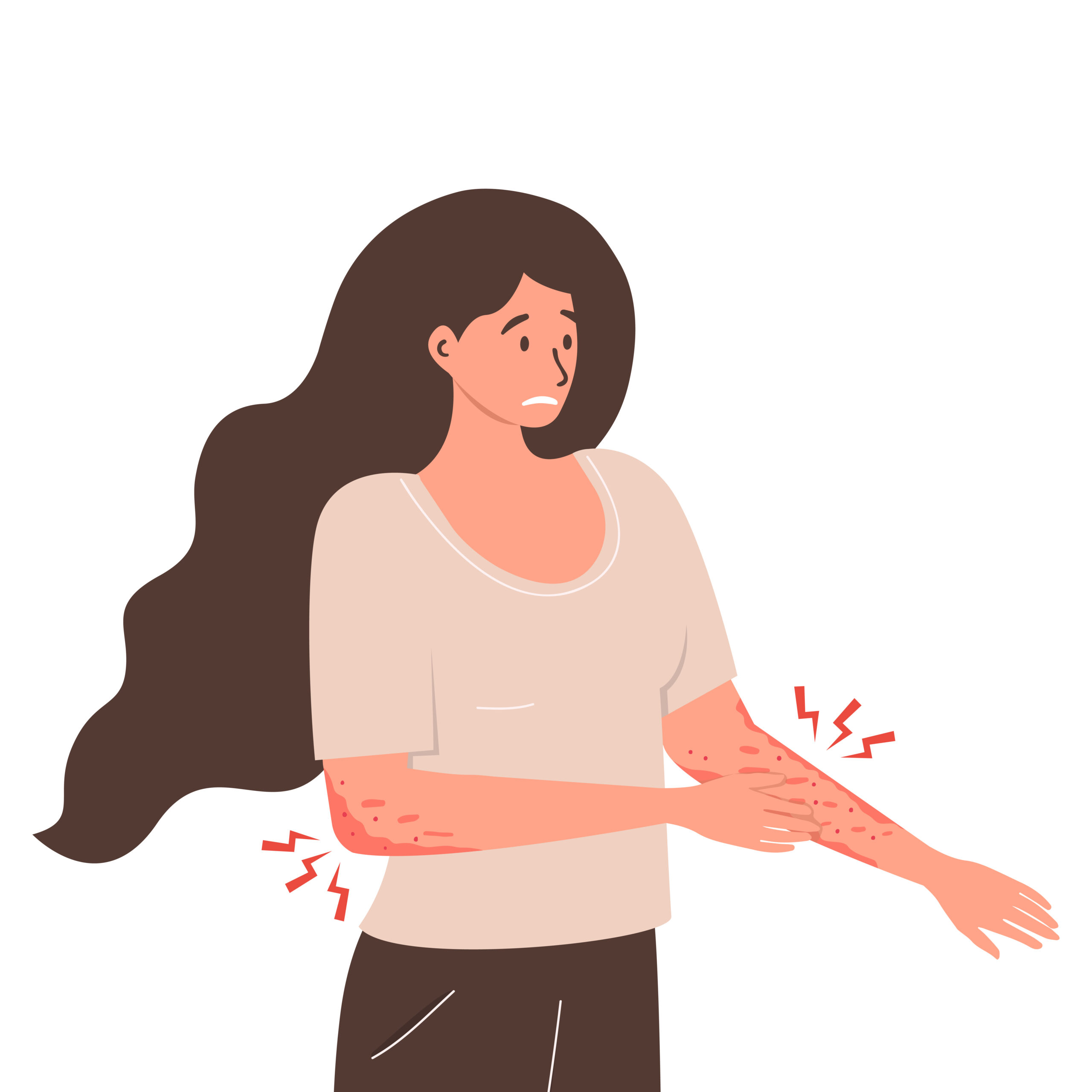
Although some symptoms are similar, here’s how to know which condition you may have.
Your skin is one of those things you tend not to think about it unless it’s bothering you. But when it does, who can think about anything else?
If you have skin irritations that don’t easily go away with over-the-counter medications, it’s possible you have eczema or psoriasis. Some symptoms of these conditions, including discolored skin, rashes, burning and itching, are similar. That’s why it can be difficult to know which condition you have without a medical exam. If you suspect you have either of these skin conditions, schedule an appointment with a dermatologist to get the right diagnosis and treatment.
Psoriasis
Psoriasis is a chronic autoimmune disease. This means your immune system isn’t functioning properly and your skin cells grow too fast. Plaque psoriasis is the most common type of this condition. It may appear as red patches with silvery scales on lighter skin, while it looks more purple or discolored on darker skin tones. The patches may be thick and raised and most often appear on the knees, elbows or torso. They can also be on the face, scalp or buttocks.
Psoriasis usually appears in early adulthood or later, but you can get it at any age. The condition not only causes inflammation of the skin, but also inflammation inside the body. If the inflammation also affects your joints, it is referred to as psoriatic arthritis.
If you have psoriasis, you may be more likely to have other conditions such as cardiovascular disease, type 2 diabetes, anxiety or depression. Since psoriasis is an autoimmune disorder, you’re also at an increased risk of developing other autoimmune diseases, such as lupus, celiac disease, inflammatory bowel disease (IBD) and multiple sclerosis (MS).
Eczema
Eczema causes the skin to become itchy and inflamed and to have a rash-like appearance but it is not an autoimmune disease. It can occur in the same places on the body as psoriasis, but most often is found in the crooks of the knees and elbows. Affected areas can appear as dry red or brown patches. They can be bumpy but are not as raised as they are if you have psoriasis.
Atopic dermatitis is the most common type of eczema. It affects more than 9.6 million children and about 16.5 million adults, according to the National Eczema Association. It typically begins in childhood, although it can develop at any age.
Both genetic and environmental factors can trigger eczema. Some researchers believe it can be caused by a genetic mutation that occurs on the protective outer layer of skin. It may also be caused by living in a dry climate or an urban area with pollutants.
Treatment
Whether you are diagnosed with eczema or psoriasis, treatments aimed at providing relief may be similar:
- Topical creams: Your doctor may prescribe a cream or recommend an over-the-counter treatment for mild cases.
- Light therapy: In this treatment, your skin is exposed to a healthy, controlled amount of UVB light under medical supervision. This helps reduce itching and inflammation, as well as boost your skin’s ability to fight bacteria.
- Oral medication: If your condition is severe, a doctor may prescribe systemics. This oral medication helps control your immune system response and reduce inflammation.
- Biologics: Delivered by injection or an IV infusion, this targets the protein that creates the inflammation.
Unless your symptoms are very mild and improve with over-the-counter remedies, you will need to see a doctor for a diagnosis since all other treatments are available by prescription only.
“Although psoriasis and eczema can look similar, they are actually distinct skin conditions. Both are caused by immune stimulation in the skin, and both can run in families. Psoriasis tends to be thicker red plaques with a white cap of scale on the surface, and frequently appears on the scalp, elbows, knees, and inside ears. About 1/3 of patients with psoriasis will develop psoriatic arthritis. Eczema (or atopic dermatitis) has thinner plaques, which are often much itchier. It runs in families with asthma and allergic rhinitis, and is very frequently seen in children.
See a dermatologist for diagnosis and treatment.”
Copyright 2023 © Baldwin Publishing, Inc. Health eCooks™ is a designated trademark of Baldwin Publishing, Inc. Cook eKitchen™ is a designated trademark of Baldwin Publishing, Inc. Any duplication or distribution of the information contained herein without the express approval of Baldwin Publishing, Inc. is strictly prohibited.
Date Last Reviewed: June 16, 2023
Editorial Review: Andrea Cohen, Editorial Director, Baldwin Publishing, Inc. Contact Editor
Medical Review: Perry Pitkow, MD
Learn more about Baldwin Publishing Inc. editorial policy, privacy policy, ADA compliance and sponsorship policy.
No information provided by Baldwin Publishing, Inc. in any article is a substitute for medical advice or treatment for any medical condition. Baldwin Publishing, Inc. strongly suggests that you use this information in consultation with your doctor or other health professional. Use or viewing of any Baldwin Publishing, Inc. article signifies your understanding and agreement to the disclaimer and acceptance of these terms of use.